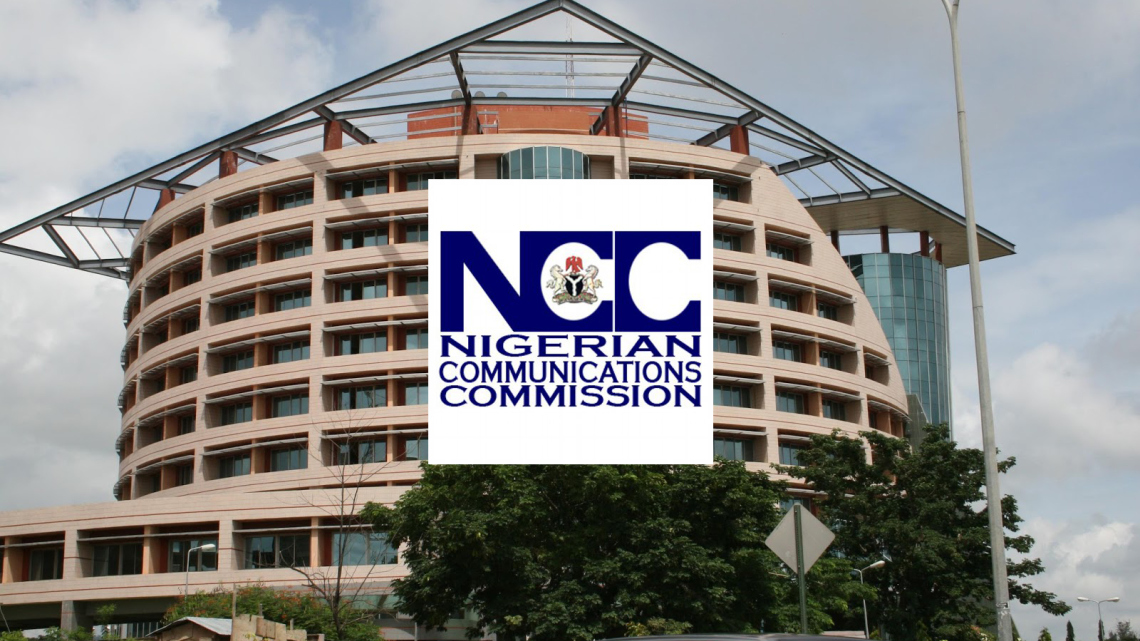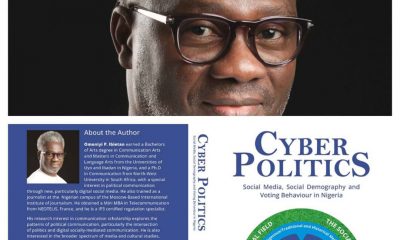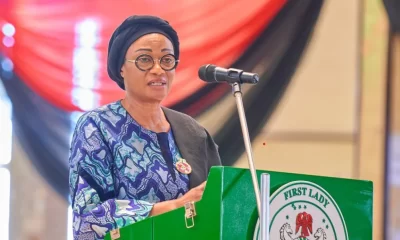ICT
Curbing illicit spectrum usage
Published
9 years agoon
By
Olu Emmanuel
Telecoms regulator continues to battle illegal users of spectrum in order to guarantee efficient spectrum utilisation in broadband era.
The Nigerian Communications Commission (NCC) under Prof. Umar Danbatta as its Executive Vice Chairman and Chief Executive Officer has again declared war against the illegal use of spectrum by some telecoms companies and other business organisations in the country.
Spectrum is a frequency band that is licensed to telecoms operators, which they, in turn, use to deploy wireless services to telecoms consumers. Over the years, despite consistent enforcement activities by the regulator on illegal spectrum users, experts say some fraudulent organisations still continue to indulge in the illicit act, which is robbing Nigeria’s economy billions of naira yearly.
Investigation by National Daily showed that nearly all the spectrum bands available for deployment telecoms services are capable of being used illegally except stringent measures are taking against the perpetrators.
But the currently leadership of NCC has warned telecoms companies and organisations fraudulently using spectrum bands that are not licensed to them to deploy services to desist or be ready to face the wrath of the law.
A case of 5.470-5.725 GHz spectrum band
One of the recent cases, that has led the NCC into reading the riot act to the perpetrators is the discovery by the Commission that the 5.470-5.725 gigahertz (GHz) spectrum band has been infiltrated by illegal users.
Consequently, the Commission had given the illegal users a 14-day ultimatum (which has expired though), to vacate the spectrum band of risk imprisonment, threatening that their actions were tantamount to criminal offence and theft of the country’s national resources.
“All unauthorised users of 5.470-5.725 gigahertz (GHz) spectrum band to desist from doing so in order not to incur the wrath of the Commission. The Nigerian Communications Commission hereby informs the general public that the 5.4GHz band spanning 5.470 – 5.725 GHz frequency range is a licensed band in Nigeria,”
Danbatta said transmission of signals or use of equipment in any form on the band without a frequency license obtained from the NCC is illegal and shall not be tolerated. He warned all concerned operators and companies or any person(s) using the band to note that it is a criminal offence pursuant to the section 122 of the Nigerian Communications Act (NCA) 2003 to operate on any frequency not duly assigned by the Commission.
“The consequences of such act may lead to imprisonment, sanction and forfeiture of equipment used in operating the illegal services. “In view of the above, the Commission hereby gives a 14- day pre-enforcement notice to all unlicensed operators on the 5.4 GHz band spanning 5.470 – 5.725 GHz to forthwith vacate and desist from further transmission of signals or use of equipment in any form on this band without authorization obtained from the NCC,”
Danbatta further explained further that the Commission would, without further resources and upon expiration of the stipulated deadline, commence appropriate enforcement action including but not limited to prosecution, fine and confiscation of equipment used in the illegal transmission.
He said detailed regulatory provisions for the deployment of services on the entire 5 GHz band are contained in the Guidelines for Deployment of Broadband Services on the 5.2 – 5.9 GHz band, available in the Commission’s official website.
Revenue potential
Globally, apart from its usage to provide telecoms services across in a country, spectrum sales by the government constitute potential revenue generation source for the government.
ALSO SEE: NCC says internet users remain at 90m in April
Available records show that till date, sales of spectrum by telecoms regulator has resulted in revenue generation in excess of N350 billion into the government coffer. Between 2001 and 2013, spectrum sales and issuance of other related liecences contributed N300 billion into the government coffers.
Recently specrum sales activities in the country, however, showed that beween 2013 and now, the figure may have swollen to over N350 billion. For instance, in February 2014, the regulator increased the spectrum auctions’ proceeds to over N302 billion, with the licensing of the 2.3 gigahertz spectrum band to Bitflux, a broadband company, at a total cost of $23.2 billion (about N2.4 billion). Also in June, 2016, MTN paid over N18 billion into government’s coffer as payment for the purchase of some slots in the 2.6 GHz spectrum band.
According to an expert, Mr. Akin Akinbo, it is wrong for any organisation to use a spectrum not licensed to it because “spectrum is scarce resource and if judiciously allocated by the regulator and efficiently used by the licensees.”
Meanwhile, efficient allocation of spectrum has been identified as key to broadband deployment. Former President of the Association of Telecoms Companies (ATCON), Mr. Lanre Ajayi, said more lithan 90 per cent of services being deployed by operators in Nigeria are done through wireless means.
“This simply means we need more spectrum bands while existing ones should be properly re-farmed and re-planned to deploy services on our various technologies such as 2G, 3G and 4G LTE,” he said.
Realising this, the NCC has made the issue of facilitating broadband penetration and efficiency spectrum usage a priority target on its 8-Point Agenda. To this end, Danbatta, who spoke at a function in Lagos last month, restated the Commission’s commitment towards ensuring effective allocation and utilization of frequency spectrum available to the country, With this, Danbatta said NCC will provide and optimise access to and use of affordable fixed and mobile broadband everywhere in Nigeria.
He maintained that the strategy to achieve the first item on the 8-Poing Aganda, will require the NCC to facilitate and support availability of broadband services by promoting deployment of universally available, fast and reliable network infrastructure that will stimulate seamless broadband penetration to drive technology innovations and overall productivity of the economy.
“Closely linked to this, however, is the need to ensure efficient allocation and subsequent utilisation of spectrum to industry players in a fair and transparent manner with a view to allowing them to deploy broadband services across the country,” he said.
Meanwhile, beyond fighting illegal usage of spectrum, stakeholders have urged the NCC to release framework for spectrum trading while also fast-tracking activities on spectrum re-framing in order to put redundant spectrum licences into active use while guaranteeing efficient usage through re-farming and replanning of some spectrum in a bid to have them handy for the deployment of broadband services.
You may like


Ibietan’s book on cyber politics for public presentation 25 July


Tinubu holds meeting with MTN Group Chairman, NCC Vice Chairman


NCC debunks reports on 5G network operation in Lagos


NCC speaks on fibre optic cable laying in Lagos, others


NCC dismisses reports linking 5G network to Coronavirus


NCC fines Airtel, 3 others N2.9bn over infractions
Trending

 Entertainment6 days ago
Entertainment6 days agoSinger Simi faces backlash after TikToker admits to false rape allegation

 Entertainment3 days ago
Entertainment3 days agoSimi addresses resurfaced 2012 tweets amid online backlash

 Latest1 week ago
Latest1 week agoTinubu defends electoral reform, downplays mandatory real-time upload

 Comments and Issues6 days ago
Comments and Issues6 days agoNigeria’s Declining Oil Output and Soaring Foreign Portfolio Investment Inflow

 Business6 days ago
Business6 days agoPENGASSAN warns Tinubu’s executive order on oil revenues could jeopardise 4,000 jobs

 Comments and Issues6 days ago
Comments and Issues6 days agoEx-prince Andrew’s arrest, lessons for Nigeria

 Health1 week ago
Health1 week agoNanoplastics may disrupt brain cells that control puberty, fertility, study finds

 Editorial Opinion1 week ago
Editorial Opinion1 week agoFirst Lady, Senator Oluremi Tinubu: A call to purpose beyond symbolism

